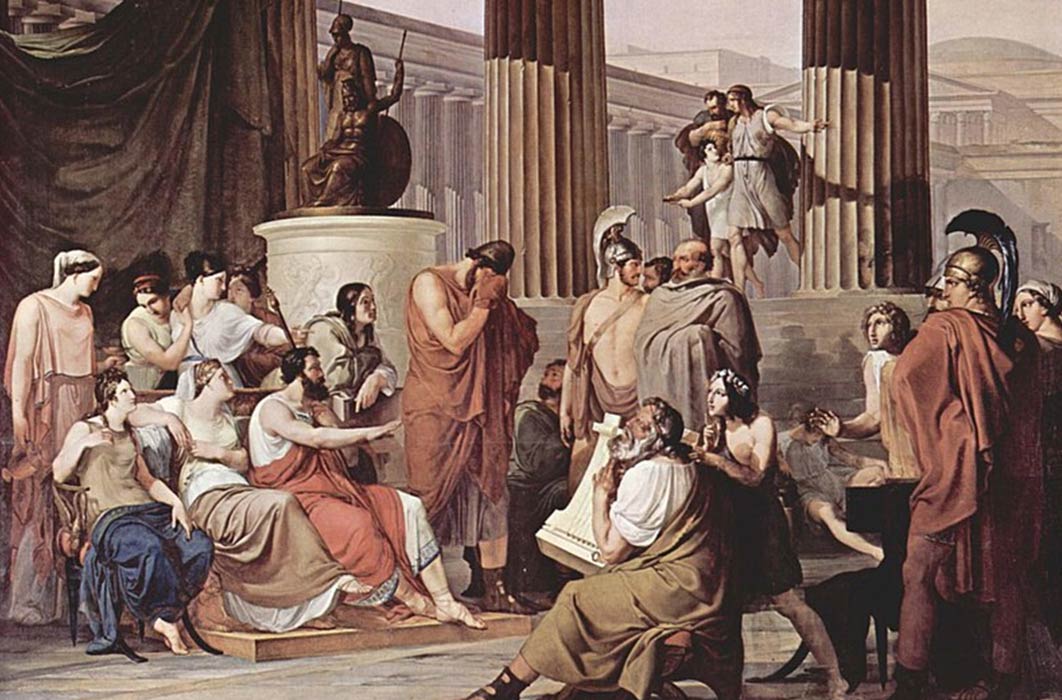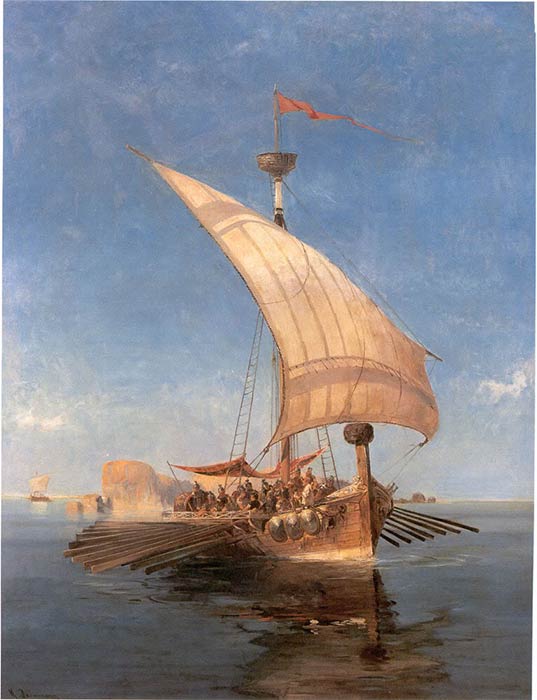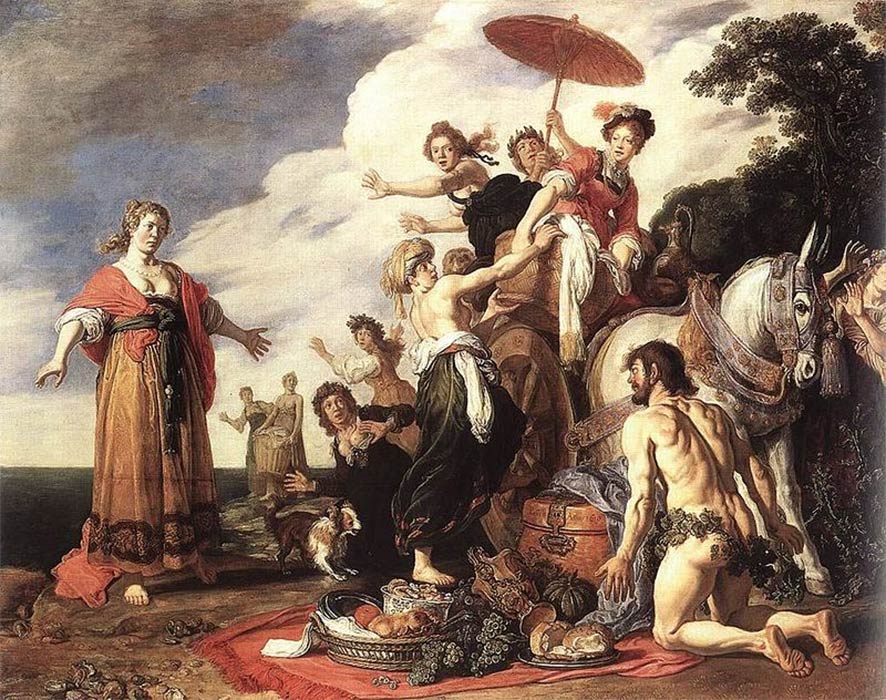
Clues To King Alcinous’ Scheria: The Lost Sickle In The Sea
The mythological Alcinous and the location of his kingdom of the Phaeacians have remained one of the most elusive topics of ancient Greek literature. Clues to the ruler and his kingdom survive only in the narratives of the journeys of Odysseus and Jason. Was there an Alcinous prototype ruling over a foreign nation of master seafarers? Apollonius in Argonautica directs one to Drepane in the Ceraunian sea; Apollodorus in Library points to Corcyra (Korfu) as the island of the Phaeacians; Homer in the Odyssey only writes that Odysseus washed ashore on Scheria, and that the Phaeacians had fled from Hypereia where they were under attack from the Cyclopes. How much evidence can the ancient narratives provide, and how much of it can be corroborated by archaeology, geography and paleontology?

The Argo, by Konstantinos Volanakis (1837–1907) (Public Domain)
Clues From The Odyssey And Argonautica
In every source, it is said Alcinous was not a native to Greece but instead a ruler of the peoples known as the Phaeacians, living in the outskirts of what then was the known world. He was a wise and just leader; favored by both gods and man. He is first and formally introduced in the eighth century BC epic, Homer’s the Odyssey. King Alcinous also plays an important role in the third century BC Apollonius Rhodius’ Argonautica. Although this script post-dates Homer by at least half a millennium, Homer and his audience were well aware of the exploits of Jason and the Argonautic myth. The Argonauts were a band of heroes in ancient Greek mythology who accompany Jason to Colchis in his quest to find the Golden Fleece on their ship, the Argo. They are said to predate the Trojan War. This becomes clearer in the episode in the Odyssey where Circe gives Odysseus instructions on how to continue his voyage home and where she begins to speak of the Planctae (or the Wandering Rocks) stating the following: “One seafaring ship alone has passed by those, that Argo famed of all, on her voyage from Aeetes, and even her the wave would speedily have dashed there against the great crags, had not Hera sent her through because Jason was dear to her”.

Circe and Odysseus, by Matthijs Naiveu (1702) (Public Domain)
It should also be noted that Circe was the sister of King Aeetes of Cholchis. Aside from the Planctae, other themes from the Odyssey can be found in the Argonautica which include the sirens. Homer writes that under the direction of the Olympians, and after 20 years away from Ithaca, his native land, Odysseus was freed by Calypso (daughter of Atlas the Titan) from her island, and he eventually washed ashore on the island of Scheria. Ten years was taken from Odysseus as he fought in the Trojan War and the remaining ten were for his voyage back home from the war – a punishment for offending Poseidon. Alcinous was the happy ruler of Scheria with his wife, Arete, his five sons and one daughter, Nausicaa.

Naked Odysseus surprises Nausicaa and her maids by Peter Lastman (1619) Web Gallery of Art (Public Domain)
Homer writes in the Odyssey: “...but Athene went to the land and city of the Phaeacians. These dwelt of old in spacious Hypereia near the Cyclopes, men overweening in pride who plundered them continually and were mightier than they. From there Nausithous, the godlike, had removed them, and led and settled them in Scheria far from the bread-eating mankind. ...Alcinous was now king, made wise in counsel by the gods”.




